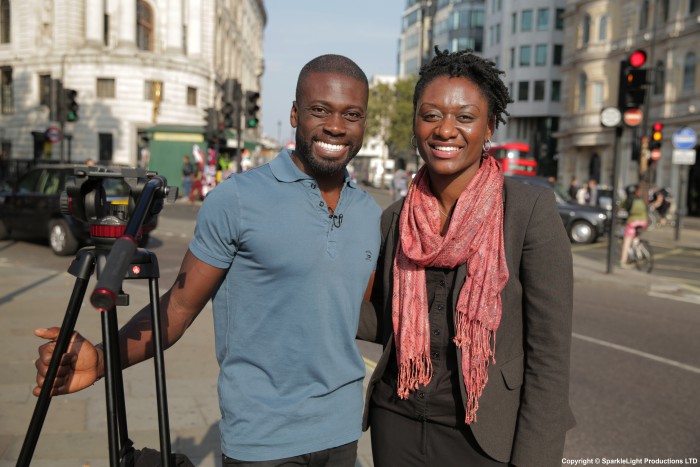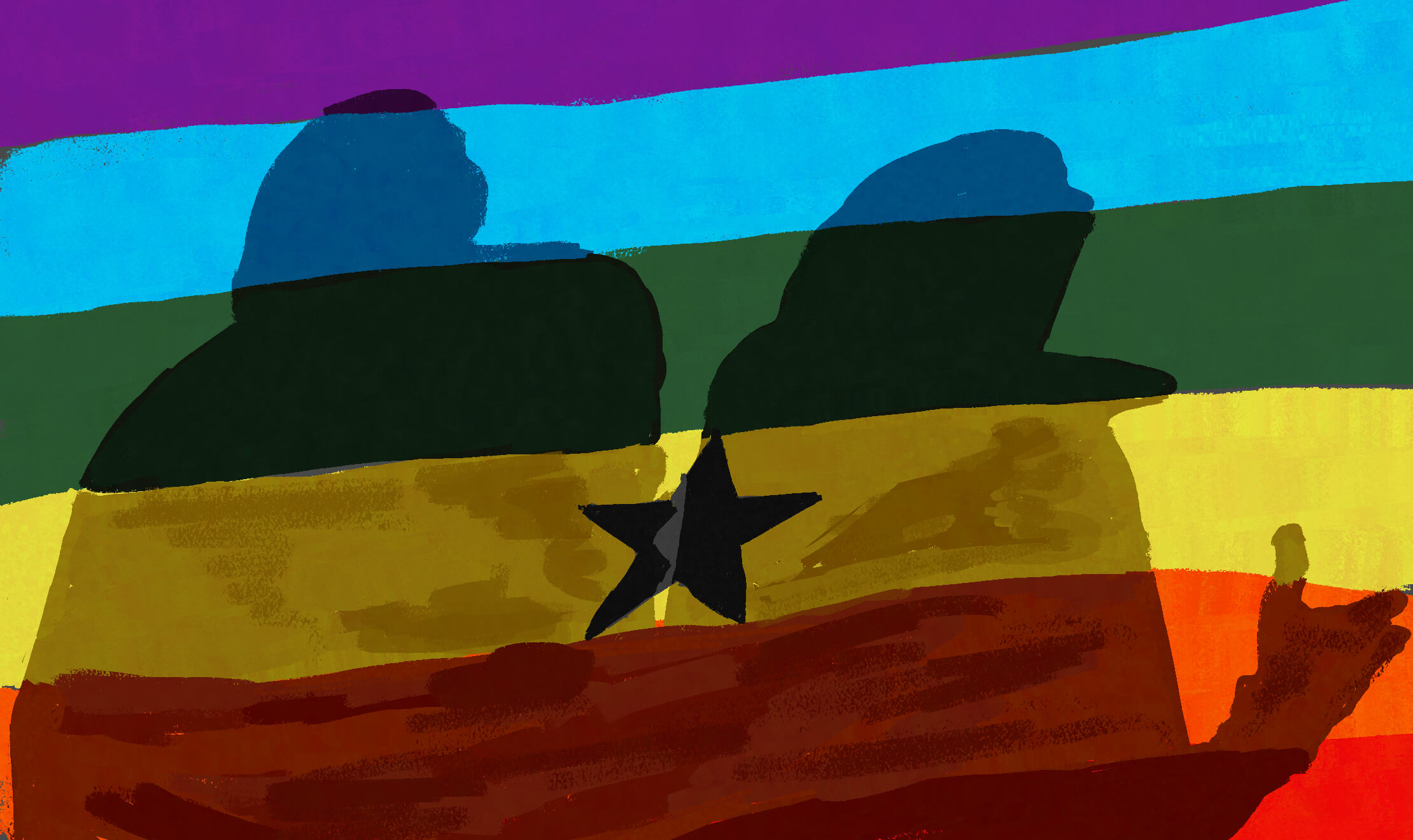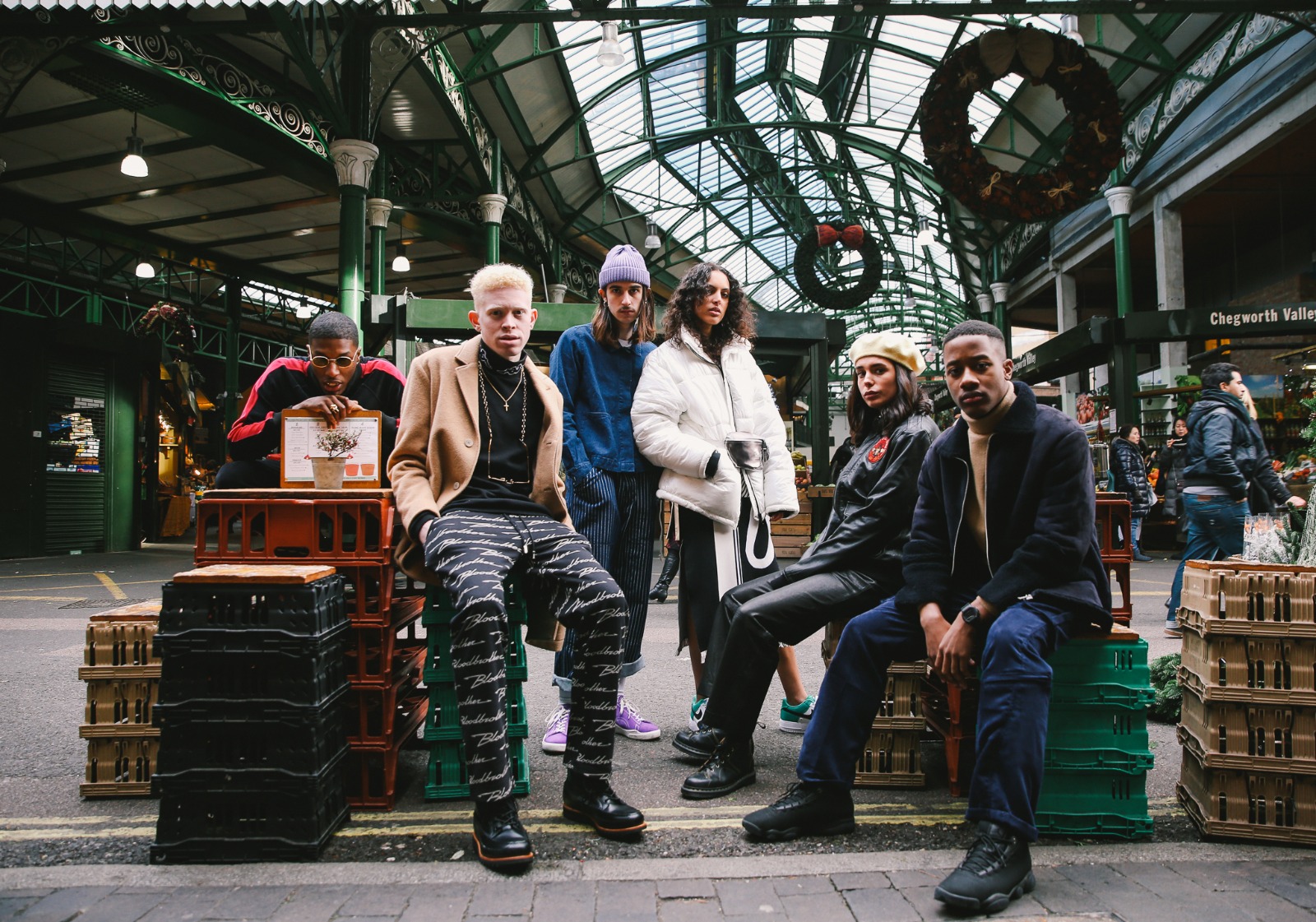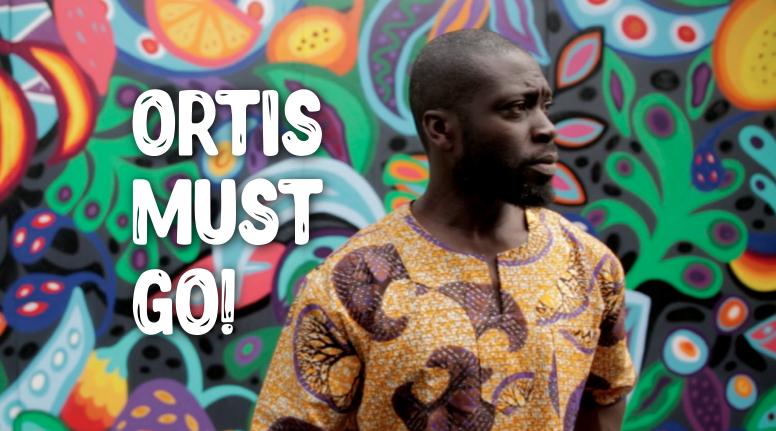
Are British Ghanaians lost in translation? Interview with Pamela Sakyi
Hélène Selam Rose Kleih
12 Dec 2015
‘Every colonized people–in other words, every people in whose soul an inferiority complex has been created by the death and burial of its local cultural originality–finds itself face to face with the language of the civilizing nation; that is, with the culture of the mother country. The colonized is elevated above his jungle status in proportion to his adoption of the mother country’s cultural standards.’
Franz Fanon (The Negro and Language)
Our generation remains voiceless. For the African diaspora (and many other immigrants) in the UK, the English language remains as the eternal reminder of the colonizer.
SPEAK ENGLISH.
It is not simply a command for oral expression. It is an order for cultural assimilation, letting go of our multiple identities and our sense of belonging.
Throughout the world, the English language has replaced indigenous languages in multiple aspects of social and economic life, leaving a people void of cultural expression.
And this battle with language is something all too close to home for the Ghanaian diaspora. With almost eighty languages spoken in Ghana alone, it is English that prevails as the official language.
As we see a favouring of British culture over that of Ghana’s between 1st and 3rd generation British Ghanaians, the future of Ghanaian languages remain under threat.
Language and its intrinsic ties with culture cannot be separated from self-expression and self-worth. And thus with more and more young British Ghanaians unable to speak their parent’s language, many ask how their Ghanaian heritage will survive?
Inspired by this personally burning topic, producer Pamela Sakyi created the documentary British Ghanaians: Lost InTranslation? in order to challenge the reasons behind the lack of language transmission, and ultimately inspire the inter-generational teaching and learning of Ghanaian languages.
gal-dem: Firstly, what’s your background like career-wise? Have you created any other films or documentaries?
Pamela Sakyi: I’ve been working in the media industry for over 10 years now. I have worked on documentary projects for the Foreign & Commonwealth Office, Lambeth Council as well as having edited/produced music videos, web series and serial content for television.
So how did British Ghanaians: Lost InTranslation? come about? What initially inspired you and what drove you on?
I was given the opportunity by OH TV to create content which focused on Ghana (because of my Ghanaian background and love for documentary). I decided to cover a subject which was dear to my heart – loss of language and cultural identity. Throughout my career I have met so many successful British Ghanaians who have struggled to speak their Ghanaian languages and I always wondered why we as Ghanaians have made this problem such a trend in the UK. I wanted to highlight the problem but also produce something that would inspire the British Ghanaian community into action. It’s sad to think that if we lose our connection to our parent’s languages, we will not only have a hard time connecting with our family, but our roots and cultural heritage back home in the Motherland will also be compromised.
Why do you think immigrant Ghanaian parents are failing to pass down their native language?
There are several reasons for this. The generation of post-World War II immigrants who settled in the UK years ago, faced a lot of racial tension and financial lack. Many did not want their children to face the same situations that they had and so they believed the best way for them to move forward in life, was to ensure they could integrate into society easily by speaking English. There was also a common belief that if they spoke different languages in the home, then their young children would be confused and set back academically in school. Other reasons include situations where parents spoke different Ghanaian dialects/languages in the house so it was easier to speak one uniform language: English.
I’ve observed that in some African communities in England (like my own Eritrean community), many young people view speaking in mother tongue as a sign of being less developed. Furthermore, some parents (although still a rarity) would rather have their children falsely assimilate into a one dimensional view of British culture.
Does this also happen in the Ghanaian community? Do you find it a paradox that immigrant parents celebrate Britishness yet also condemn their children for not recognising their origins?
Ah yes! This is a very confusing paradox, which also affects the Ghanaian community. This is rooted in the perceptions of Britishness that Ghanaians have back home in Ghana. There is a perception that Britishness is synonymous with wealth and prestige, and thus this notion is continued as they come to the UK. Parents encourage their children to assimilate into British Culture and celebrate their desire to fit in with their British peers. However, over time this can cause the younger generations to develop an unhealthy under-appreciation of their Ghanaian roots. So when the older generation want them to acknowledge and celebrate their heritage, they get angry that the younger generation is more in tune with their Britishness, rather than their Ghanaian roots.
Language and its intrinsic relationship with individual identities and societal inclusion is complex enough without adding the thorny dimension of parenting and the stereotype of the ‘proud African parent’.
How do you feel about parents finding a medium that doesn’t exclude their children from either their Ghanaian or British identity?
Children are very observant and they make formative decisions about their environment very early. Regarding language, it is important for parents to ensure that they communicate to their children as early as possible, and that it is completely acceptable to appreciate Ghanaian languages and English together.
So, what’s the reception been like from the Ghanaian community? How have the opinions and acceptance of British Ghanaians: Lost InTranslation? differed between generations?
The reception has been fantastic! So many people from the Ghanaian community have strongly related to the subjects discussed in the documentary. They acknowledge that our problem with language is so widespread and prevalent, yet has never really been tackled in the mainstream media. The documentary has received some interesting responses from the first generations of Ghanaians, many of whom were quite apologetic about failing to pass down their languages effectively to their children. The younger generation of British Ghanaians were very proud to see ‘their story’ on screen, and many have been motivated to finally learn their Ghanaian language more fluently.
And you’ve got an event coming up in December with special guests – tell us a bit more?
Yes! Our first screening event of the documentary is on Saturday 12th December (7pm) at London’s prestigious Bernie Grant Arts Centre. The screening will be followed by a Q&A with presenter Ortis Deley (The Gadget Show), GUBA awards CEO, Dentaa Amoateng, Ghanaian Language School Co-founder, Naomi Fletcher and myself. It’s a sold out event so it’s got a good response – I’m thrilled that people are so excited about it!
And finally, with gal-dem mainly dealing with issues of young women of colour, what advice would you give to young British people from an immigrant background, regarding maintaining their sense of cultural identity? What did you do yourself as a teenager/young adult?
Be proud of your dual/mixed identity! Celebrate the gift of belonging to different cultures. Enhance and establish your sense of belonging by learning your non-English cultural language fluently!
As a teenager I wasn’t always as proud of my Ghanaian heritage and I went through stages of identifying myself as ‘British’ and having ‘Ghanaian parents’. I didn’t want to wear Ghanaian clothing outside of Ghanaian events. But, as I got older I began to realise how richly blessed I was to be a British Ghanaian. I’d encourage other young British people from immigrant backgrounds to proudly contribute towards how others receive you. If you are ashamed, that’s how others will perceive your immigrant cultural background – as something to be ashamed about. Share your culture with your friends and the world – clothing, food, language and more! Be proudly confident about your background and cultural heritage.









